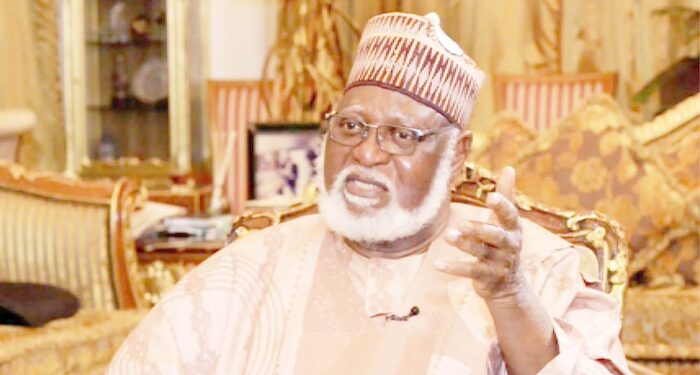Former military Head of State, General Abdulsalami Abubakar, voiced concerns about the worsening economic hardship in Nigeria, urging the government to take more robust action to address the situation. Speaking in Minna, Niger State, during a visit from the leadership of the Campaign for Democracy (CD), Abubakar emphasized that the nation’s difficulties, such as rising food prices, transportation costs, and fuel hikes, are spiraling out of control.
He lamented that most Nigerians can no longer afford basic necessities, including three square meals, and highlighted the growing burden of increased school fees. Abubakar stressed the need for both federal and state governments to find solutions, suggesting that flooding the market with food at reduced prices could offer immediate relief to citizens. He added that while palliatives might offer short-term help, they are not a lasting solution.
The former leader also addressed the upcoming #Endbadgovernance protests set for October 1, urging demonstrators to remain peaceful and avoid the looting and destruction seen during previous protests. He called on the government to listen to the voices of the protesters, reminding authorities, “You cannot beat a child and prevent it from crying.”
During the visit, the CD delegation urged Abubakar to intervene with President Bola Tinubu, asking for solutions to the nation’s growing hunger crisis. Abubakar shared that he and others have already submitted recommendations to the federal government on how to address these issues, with a focus on sustainable, long-term economic solutions.
Meanwhile, Nigeria’s 36 state governors are also implementing region-specific strategies to tackle the country’s food insecurity. These efforts range from irrigation projects in Kano and drought-resistant crops in Yobe to technology-driven farming in Oyo and aquaculture initiatives in Rivers. The report by the Nigeria Governors’ Forum (NGF) highlighted ongoing collaborations with federal agencies and international organizations aimed at boosting agricultural productivity and addressing food scarcity nationwide.
In a related development, the Minister of Information and National Orientation, Mohammed Idris, called on Nigerians to take full advantage of federal government intervention programs designed to ease the economic transition, particularly following the removal of fuel subsidies. Idris, speaking during a town hall meeting in Umuahia, assured citizens that the government is committed to cushioning the effects of recent economic challenges through a variety of strategic initiatives across multiple sectors.


